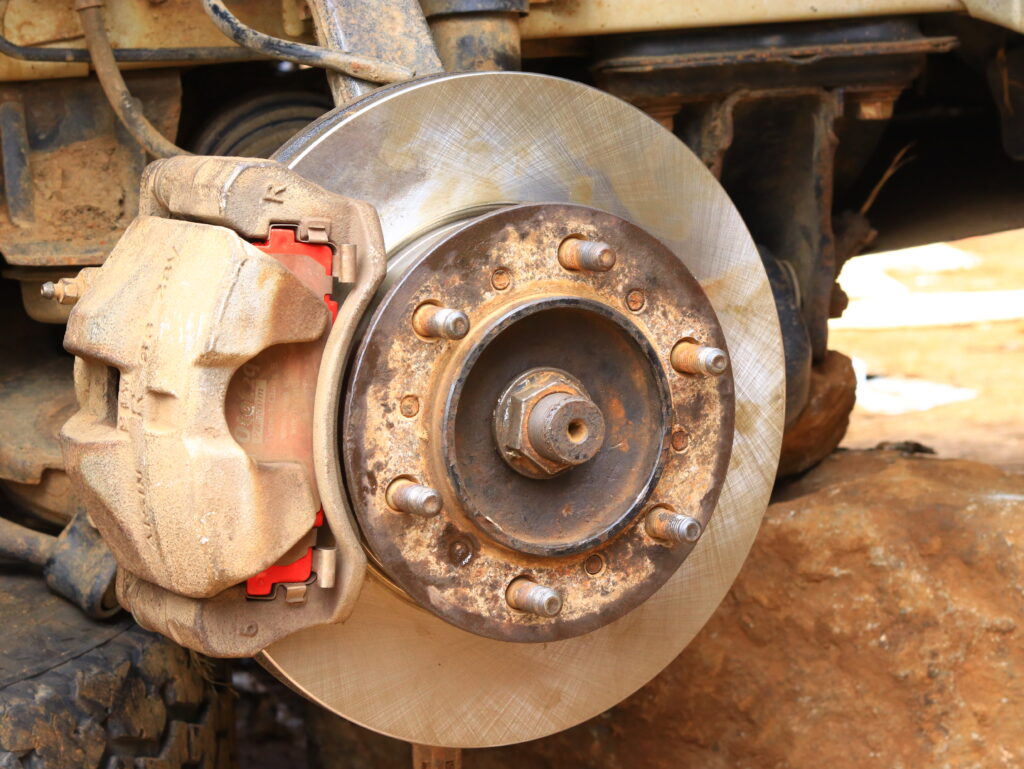
Brakes are one of the most vital components of your vehicle’s safety system, so it’s only natural to feel a bit apprehensive after getting brake repairs. You might find yourself thinking, “Is everything really okay now? or “What if something goes wrong?”
These are common worries many drivers experience. However, it’s important to separate legitimate concerns from misconceptions.
In this blog post, we’ll explore some of the most common concerns and misconceptions drivers have after brake repairs. We’ll walk you through what’s normal, what you should be aware of, and when you might need to head back to the mechanic.
Common Brake Repair Concerns and Misconceptions
Let’s clear up some common misconceptions and address your concerns.
1. The Brakes Still Feel Soft: Should I Be Worried?
One of the most frequent complaints drivers have after a brake repair is that their brakes feel soft or spongy. If you’re feeling this, don’t panic just yet. Soft brakes can occur for a few reasons:
- Brake Pad Break-In (Bedding Period): When new brake pads are installed, they need time to break in. During this process, the pads may not feel as responsive as they will after they’ve settled into place. This break-in period usually lasts for about 100-200 miles.
- Air in the Brake Lines: Sometimes, air can get trapped in the brake lines during a repair, causing the brakes to feel soft. This doesn’t mean there’s a serious problem, but it should be addressed. A quick brake bleed can remove the air and restore the firm feel to your brakes.
If your brakes still feel soft after a few days or don’t improve after the break-in period, it’s wise to take your car back to the shop for a checkup.
2. I Hear Squeaking: Does This Mean the Brakes Weren’t Fixed Properly?
Squeaking brakes can definitely raise some eyebrows, especially if you’ve just had them repaired. However, squeaking doesn’t always indicate braking problems. There are a few reasons you might hear noise, even with brand-new brakes:
- Moisture or Rust: After rain or when the car has been sitting for a while, a thin layer of rust can form on the brake discs. The first few times you press the brake, this rust will wear off, but it can cause a squeak. This is perfectly normal.
- Brake Pad Materials: Some types of brake pads, especially metallic or semi-metallic ones, tend to be noisier than others. If you opt for high-performance brake pads, they might produce a bit more noise than softer organic pads.
- Glazing: Sometimes, the brake pads can get glazed if they were installed too tightly or if they were not broken in properly. This can cause squeaking but is often easily fixed by lightly sanding the pads.
If the squeaking continues or if it’s accompanied by a grinding sound, it’s a good idea to get your brakes rechecked to rule out any underlying issues.
3. Brakes Are Smoking: Did the Mechanic Miss Something?
Nothing is more alarming than seeing or smelling smoke coming from your brakes after a repair. However, there’s no need to assume your mechanic botched the job. Smoke can happen for several reasons:
- Breaking in New Pads: New brake pads sometimes release oils or other substances as they heat up for the first few uses, producing a bit of smoke. This should stop after you’ve driven a few miles.
- Overheating: If you’ve been driving down a steep hill or towing something heavy, your brakes can get extremely hot, which may cause them to smoke. This is called brake fade, and while it can be alarming, it’s usually temporary. You can help prevent this by downshifting when driving downhill and avoiding riding the brakes.
If the smoke persists, it could indicate that the calipers are stuck or that the brake system was improperly installed. In that case, take your vehicle back to the mechanic for a thorough inspection.
4. The Car Shakes When I Brake: Is Something Wrong?
Shaking or vibrations when braking is a red flag that something might not be right, but it doesn’t always point to a huge problem. The most common cause of this shaking is warped brake rotors. Here’s why this happens:
- Improper Installation: If the brake rotors weren’t installed or torqued down correctly, they can warp over time, causing the car to shake when you apply the brakes.
- Hard Braking: Even after a brake repair, if you slam on your brakes frequently or ride them hard, the heat can cause the rotors to warp. This leads to vibrations that you’ll feel in the brake pedal or steering wheel.
The good news is that warped rotors can usually be resurfaced (shaved down slightly) to remove the uneven spots. If they’re too damaged, they’ll need to be replaced. Either way, it’s an easy fix.
5. Brake Pedal Goes All the Way to the Floor: Did They Miss Something?
If your brake pedal sinks all the way to the floor before the car stops, something is definitely wrong. This isn’t a normal post-repair symptom and should be checked immediately. Common causes include:
- Brake Fluid Leak: The brake system relies on hydraulic pressure to function properly. If there’s a leak in the brake lines, fluid will escape, causing the pedal to sink.
- Master Cylinder Problems: The master cylinder is responsible for distributing brake fluid. If it’s damaged or worn out, the pedal might feel soft or sink to the floor. Replacing the master cylinder should fix the issue.
A sinking brake pedal is a serious safety concern. If this happens, stop driving immediately and have your car towed to a repair shop.
6. Do I Really Need to Replace Both Sides of Brakes?
It’s a common misconception that you can replace just one side of your brakes and be good to go. In reality, brakes need to be replaced in pairs. Here’s why:
- Even Wear and Tear: Replacing only one side of the brakes can cause uneven wear between the left and right sides, which can lead to poor braking performance and even damage to your vehicle.
- Safety: Uneven brakes can pull the car to one side, especially during emergency braking, which can be dangerous.
So, yes—replacing both sides might cost more upfront, but it will save you money in the long run and ensure your safety on the road.
Closing Thoughts
Brake repairs can be quite unnerving, especially when you’re not sure what to expect afterward. The key is to stay informed and not jump to conclusions. While some post-repair concerns are valid, many common worries, like soft brakes, squeaks, and even smoking, are perfectly normal and temporary. However, if something feels off or unsafe, always trust your instincts and get your vehicle rechecked. In case you still have more concerns, we are always ready to assist you. Don’t hesitate to reach out to us today for extra clarification.

